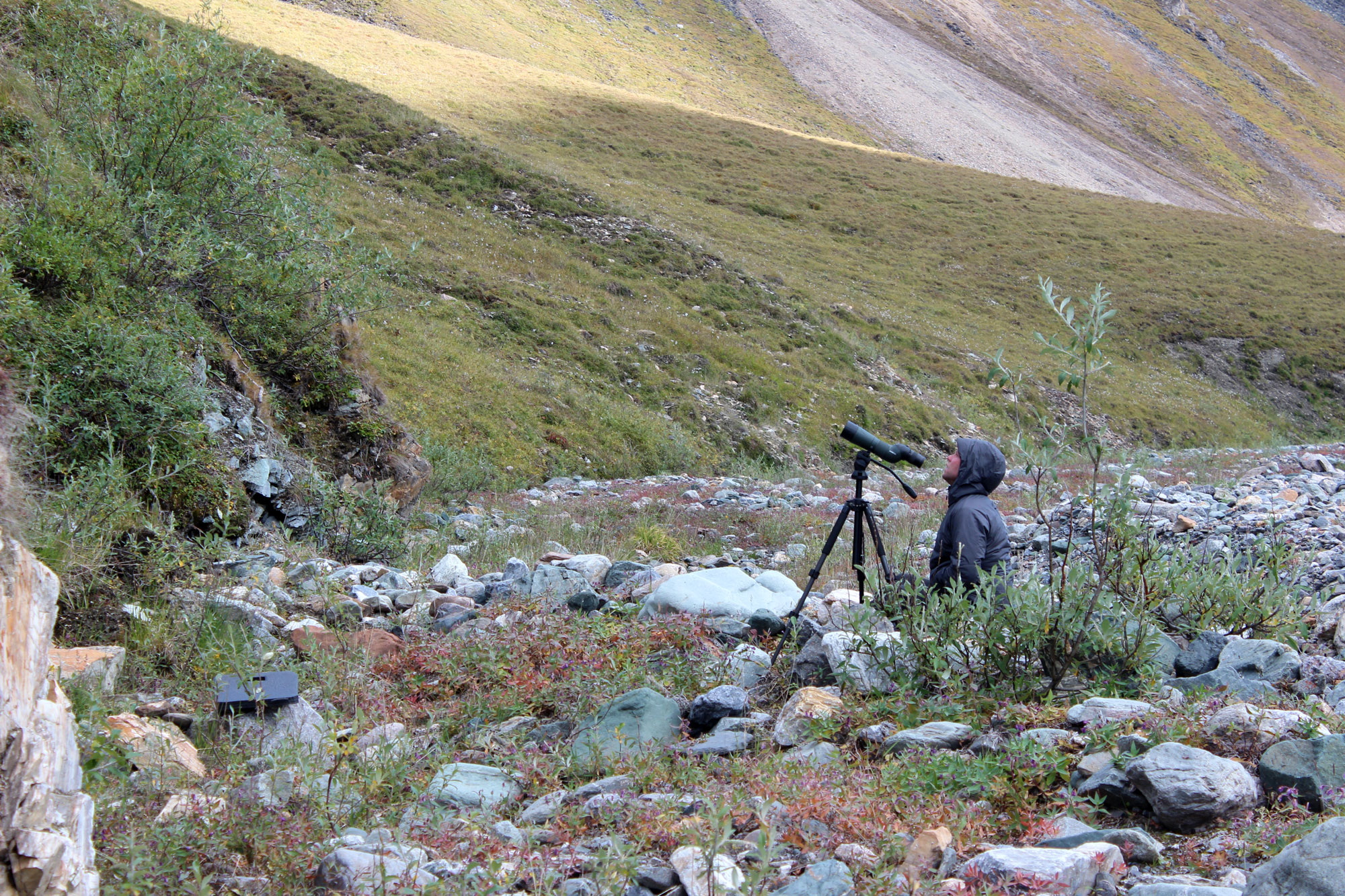Overrated “Survival Skills” You Don’t Actually Need
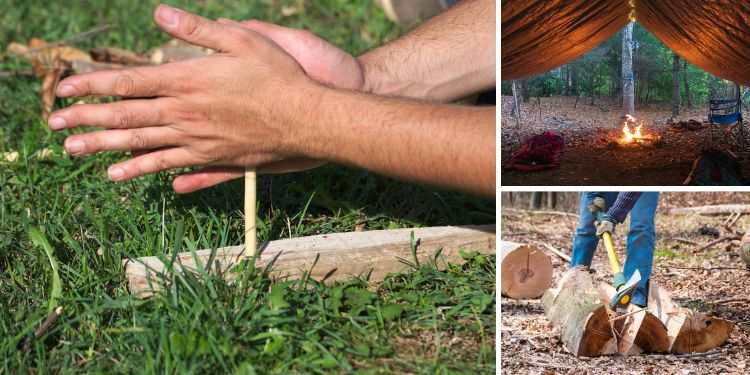
When it comes to survival, there’s no shortage of advice on what skills you should master.
Television shows and movies often glamorize certain abilities, making them seem essential for anyone looking to prepare for the worst.
However, not all hyped-up survival skills are as practical or necessary as they’re made out to be.
In this article, we’ll explore some overrated survival skills that you might not actually need and highlight more practical alternatives to focus on.
Making Fire with Friction
The image of rubbing sticks together to create fire is iconic in survival movies and shows.
While starting a fire using friction methods like the bow drill or hand drill can be impressive, it’s incredibly time-consuming and requires a lot of practice to master.
Why It’s Overrated:
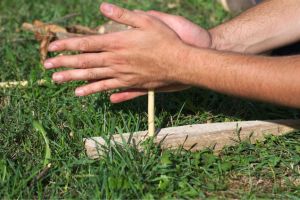 Making fire with friction is both laborious and energy intensive. In a real survival situation, you might not have the luxury of expending the significant effort required for this method.
Making fire with friction is both laborious and energy intensive. In a real survival situation, you might not have the luxury of expending the significant effort required for this method.
Success heavily depends on the availability of suitable materials, which may not be present in all environments, especially if conditions are wet or damp.
For beginners, achieving success with friction-based fire starting is unreliable, which can be frustrating and even dangerous when fire is essential for warmth or cooking.
Practical Alternative:
Carrying reliable fire starters like waterproof matches, lighters, or ferrocerium rods is a more dependable way to ensure you can start a fire when needed.
These items are lightweight, inexpensive, and significantly increase your chances of success, making them a practical choice for any survival kit.
Spear Fishing
Spear fishing evokes images of surviving off the land, catching fish with nothing but a handcrafted spear. While it looks adventurous, spear fishing is not the most efficient way to secure food in a survival scenario.
Why It’s Overrated:
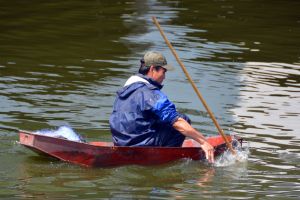 Spear fishing requires precision, patience, and a significant amount of practice to be successful.
Spear fishing requires precision, patience, and a significant amount of practice to be successful.
It can be energy-intensive, and the calories expended might outweigh the nutritional benefits gained from a small catch.
Related: How to Catch Fish With a Bottle
Additionally, this method only works in clear, shallow waters with an abundance of fish, which isn’t always the case in many environments.
Practical Alternative:
Learning to set passive traps is a more efficient method.
Setting up fish traps or using improvised nets allows you to catch fish passively, conserving energy for other critical tasks.
This approach increases your chances of securing food without constant effort and can be more effective in various water conditions.
Navigating by Stars
Using the stars to navigate is a romantic notion rooted in ancient practices. While it sounds useful, and may be helpful if you find yourself stranded in the middle of the ocean, celestial navigation is complex and not always practical for most survival situations.
Why It’s Overrated:
 Navigating by stars requires extensive knowledge and practice to be accurate. It’s also highly dependent on clear weather conditions; cloudy skies or light pollution can render this skill useless. Moreover, celestial navigation doesn’t provide precise locations or distances traveled, which can be critical when you’re trying to reach safety or locate resources.
Navigating by stars requires extensive knowledge and practice to be accurate. It’s also highly dependent on clear weather conditions; cloudy skies or light pollution can render this skill useless. Moreover, celestial navigation doesn’t provide precise locations or distances traveled, which can be critical when you’re trying to reach safety or locate resources.
Practical Alternative:
Carrying a compass and a map is a far more reliable method of navigation.
Related: 5 Maps You Should Have at Home
These tools are simple to use, don’t depend on weather conditions, and can help you find your way more accurately. Familiarizing yourself with basic map-reading and compass skills is practical and essential for most survival scenarios.
Building Complex Shelters
Constructing elaborate shelters like log cabins or elevated treehouses is often showcased as a vital survival skill.
These require a master’s knowledge in construction techniques and are often used to romanticize the survival story. While shelter is essential, complexity doesn’t always equate to effectiveness.
Why It’s Overrated:
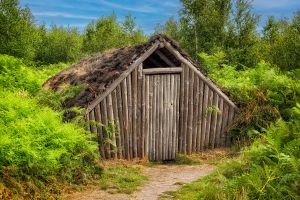 Building complex shelters is time-consuming and requires significant materials and tools.
Building complex shelters is time-consuming and requires significant materials and tools.
Unfortunately, you might not have access to any of these in a survival situation.
In many cases, a simple shelter suffices for protection against the elements.
Spending too much time and energy on an elaborate structure can detract from other essential survival tasks such as finding food or signaling for help.
Practical Alternative:
Focus on building quick shelters. Simple structures like lean-tos or debris huts require minimal time and resources while providing adequate protection.
You can learn here how to build efficient shelters and save valuable energy and time, allowing you to address other critical needs. In this guide, you will also learn how to choose the right location for your shelter and other survival skills that helped our forefathers stay alive and thrive in the wild.
Making Clothing from Animal Hides
Crafting clothing from animal hides is often portrayed as a necessary survival skill. While it demonstrates resourcefulness, it’s not the most practical use of time and energy in most scenarios.
Why It’s Overrated:
 Making clothing from animal hides is a time-intensive process that requires specific tools and knowledge.
Making clothing from animal hides is a time-intensive process that requires specific tools and knowledge.
Without the right expertise, the process can be futile and frustrating. In most cases, it’s easier and more practical to pack extra clothing or repair what you have with a simple sewing kit.
Practical Alternative:
Carry spare clothing and a small repair kit. Packing additional layers and having the means to mend your garments allows you to maintain your clothing without needing to create new ones from scratch. This ensures you stay protected from the elements with minimal effort.
While it’s exciting to learn various survival skills, it’s important to prioritize those that are practical and applicable to real-life situations.
Focusing on essential skills like food preservation, water purification, basic first aid, and efficient shelter building will serve you better in most scenarios than mastering overrated or glamorized techniques.
While it’s easy to get caught up in the allure of flashy survival skills, true preparedness comes down to mastering practical, reliable techniques. If you’re serious about honing the skills that matter most, I highly recommend checking out this guide. It cuts through the hype and offers real, actionable advice straight from an expert who knows what works in a crisis.
From securing your home against looters and intruders to tried-and-true methods for storing essential resources, this book covers everything a prepper needs to be ready for anything. It’s a must-have resource for anyone focused on surviving—and thriving—through challenging times.
By concentrating on practical preparedness and honing skills that offer the most significant benefits, you’ll be better equipped to handle emergencies effectively.
You may also like:
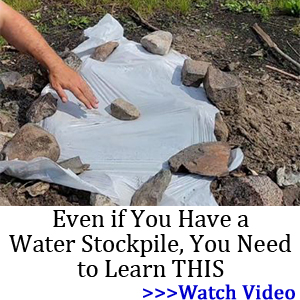 17 Items I Keep in My Fallout Shelter at All Times
17 Items I Keep in My Fallout Shelter at All Times
How to Get 295 Pounds of Extra Food for Just $5 a Week (Video)
EMP Prevention Plan: Why Our Government Has Done Nothing
Why You Should Put Plastic Forks in Your Vegetable Garden
Best States for Looters. Do You Live in One of Them?
Read the full article here



